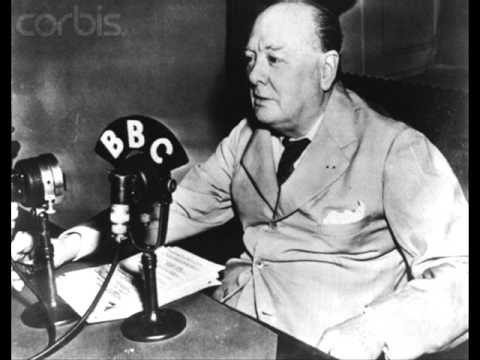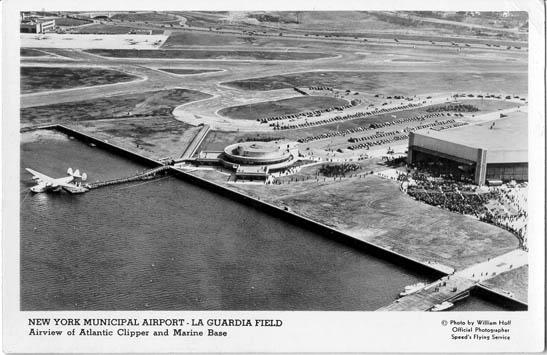Sunday 14 July 1940
 |
| Marshal Pétain leaving a church at Vichy for the Monument aux Morts on July 14, 1940. Pierre Laval (right, black coat), Vichy's prime minister, follows. |
Things pick up around 15:00, when about 40 Stukas of II./LG 1, with Bf 109s from III./JG 3 and JG 51, attack the daily "Bread" convoy off Dover. Other Luftwaffe bombers from KG2 with with their own fighter escort join the party, and soon there is a wild melee over the water composed of 100 or more aircraft. Several British ships are damaged and the 779-ton cargo ship SS Island Queen is sunk. The Luftwaffe loses three Stukas and three fighters, while the RAF loses a Hurricane of No. 615 Squadron (the pilot perishes).
Many people watch the epic dogfight from the Cliffs of Dover, including BBC reporter Charles Gardner. He spots someone bailing out into the Channel who he describes with some indifference as being a Luftwaffe pilot. In fact, it is a badly injured RAF airman who later perishes.
In the evening, the weather closes in and once again there are just scattered bomber raids, with the Luftwaffe losing a couple of bombers during a raid on Avonmouth and other areas. The Luftwaffe bombs Manston airfield and Swanage Harbour, Dorset.
After dark, the Luftwaffe launches attacks against Bristol, the Isle of Wight, Kent, and Suffolk. There also was enemy activity over the Thames estuary.
The Air Ministry issues Bulletin 1254 in response to suspicions, confirmed by some evidence, that German search-and-rescue planes are being used for other purposes. This authorizes RAF planes to shoot down Luftwaffe planes performing search-and-rescue missions:
It has come to the notice of His Majesty's Government in the United Kingdom that enemy aircraft bearing civil markings and marked with the Red Cross have recently flown over British ships at sea and in the vicinity of the British coast and that they are being employed for purposes which HM Government cannot regard as being consistent with the privileges generally accorded to the Red Cross...
HM Government is unable, however, to grant immunity to such aircraft flying over areas in which operations are in progress on land or at sea, or approaching British or Allied territory, or territory in British occupation, or British or Allied ships...
Ambulance aircraft which do not comply with the above requirements will do so at their own risk and peril.This makes all search-and-rescue aircraft over the English Channel legitimate targets for the RAF.
 |
| General De Gaulle and his followers celebrate Bastille Day at the Cenotaph in London, England on July 14, 1940. |
Vichy France sends bombers against Gibraltar, without result.
Battle of the Atlantic: U-52 (Kapitänleutnant Otto Salman) torpedoes and sinks 4111 ton Greek freighter Thetis A. off Brest, France at 18:18. There are 20 survivors and 9 crew perish.
U-A (Kapitänleutnant Hans Cohausz) sinks 5824-ton Norwegian tanker Sarita 100 miles west of Cape Verde at 11:45. All 29 onboard survive, spend four days at sea, and then are taken on board the freighter Dunstan on the 18th.
German raider Thor sinks British freighter Gracefield off Brazil after taking the 36 crew prisoner.
Convoy OA 184 departs from Methi.
The Bismarck leaves drydock.
Battle of the Mediterranean: The Italians send a fighter sweep over Grand Harbor at 06:45. Otherwise, the day is fairly quiet. The British are expanding Luga Airfield. The defending fighter force, vital for chasing away hesitant Regia Aeronautica bombers, is down to two Gladiators and one Hurricane of the Hal Far Fighter Flight. There is a myth of just three Gladiator biplanes named Faith, Hope, and Charity defending the island, but that is never the case. This is as close as it gets.
Western Front: During the night, Operation Ambassador takes place. This is a landing on the islands of Guernsey and Little Sark (accidentally) by Col. Gubbins' new commando force. The 140 men, taken from H Troop of No. 3 Commando (John Dumford-Slater) and No. 11 Independent Company, follows reconnaissance on Guernsey by Channel Islands native 2nd Lieutenant Hubert Nicolle on 6 July. Landed by destroyers HMS Scimitar and HMS Saladin, the men wander about for a while, cut some telegraph lines, find some empty German barracks, and leave at 03:00 on the 15th. Three commandos are left behind and become POWs, as is one of the destroyer men thrown from a dinghy that sinks. The enemy is never sighted. Overall, the operation is a fiasco that is perhaps of some use for training purposes and as a "dry run" for later endeavors.
North Africa: The British 1st King's African Rifles garrison at Moyale, Kenya withdraws under pressure by the Italians.
South Africa sends its Ist Infantry Brigade for Kenya.
General Wavell begins inspection of British bases in Sudan and Kenya.
War Crimes: The British respond to the shoot-down of the He 59 floatplane on 11 July, claiming that it is justified because they believe that the German search-and-rescue planes are circling British convoys for purposes of reconnaissance for later attacks.
Baltic States: The Soviets hold phony elections in occupied Latvia, Estonia, and Lithuania. The results are published "by accident" in London before the actual elections.
France: It was a tale of two cities... It is Bastille Day (Le Quatorze Juillet), celebrated by General de Gaulle on the Cenotaph in London. De Gaulle is accompanied by a guard of honor of 200 French soldiers, sailors and airmen when he lays a wreath at the monument. In Vichy France, meanwhile, this is announced to be a Day of National Mourning with flags flown at half-mast.
Cuba: Fulgencio Batista is elected President with support from, among many others, the small communist party.
US Government: William Donovan - later known as "Wild Bill Donovan" - leaves New York for London for consultations.
 |
| Winston Churchill gives his BBC speech, 14 July 1940. |
Prime Minister Winston Churchill gives a BBC radio address in which he references the "war of the unknown warriors." Britain will fight on alone, he vows:
be the ordeal sharp or long, or both, we shall seek no terms, we shall tolerate no parley; we may show mercy - we shall ask for none.He also describes the Royal Navy destruction of the French fleet in North Africa as having "come to an end" - as long as they don't try to go back to German-controlled ports in Europe.
July 1940
July 1, 1940: Vichy France
July 2, 1940: Arandora Star
July 3, 1940: Operation Catapult at Mers El Kébir
July 4, 1940: Romania In Crisis
July 5, 1940: The Five Freedoms
July 6, 1940: Hitler's High Point
July 7 1940: Dakar And Ringo
July 8, 1940: Tea Rationing in England
July 9, 1940: Battle of Calabria
July 10, 1940: Battle of Britain Begins
July 11, 1940: "Nous, Philippe Petain"
July 12, 1940: Enter Laval
July 13, 1940: German Surface Raiders Attack!
July 14, 1940: Bastille/Mourning Day
July 15, 1940: Tallest Man Dies
July 16, 1940: Plans for Sea Lion
July 17, 1940: Burma Road Closed
July 18, 1940: FDR Runs Again
July 19, 1940: Last Appeal To Reason
July 20, 1940: First Night Fighter Victory
July 21, 1940: Soviets Absorb Baltic States
July 22, 1940: First RAF Night Fighter Victory
July 23, 1940: Invasion False Alarm
July 24, 1940: The Meknés Incident
July 25, 1940: Black Thursday for RAF
July 26, 1940: Capture The Duke?
July 27, 1940: What's Up, Doc?
July 28, 1940: Destroyers Pulled From Dover
July 29, 1940: Barbarossa On The Burner
July 30, 1940: Hitler Delays Sealion
July 31, 1940: Bloody Wednesday of Olkusz
2020



